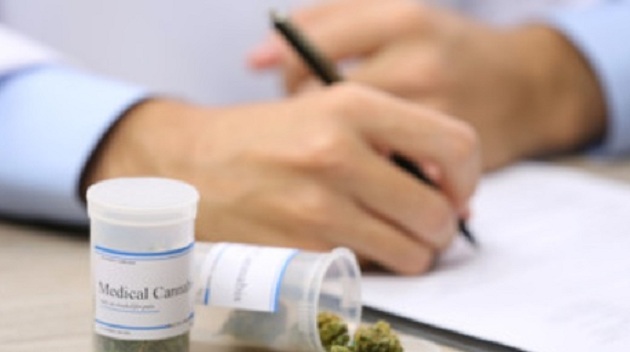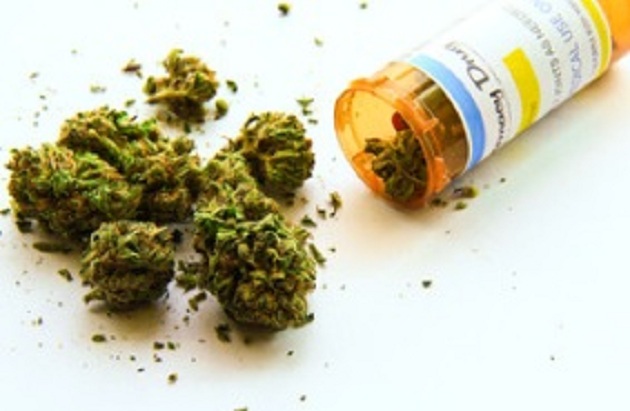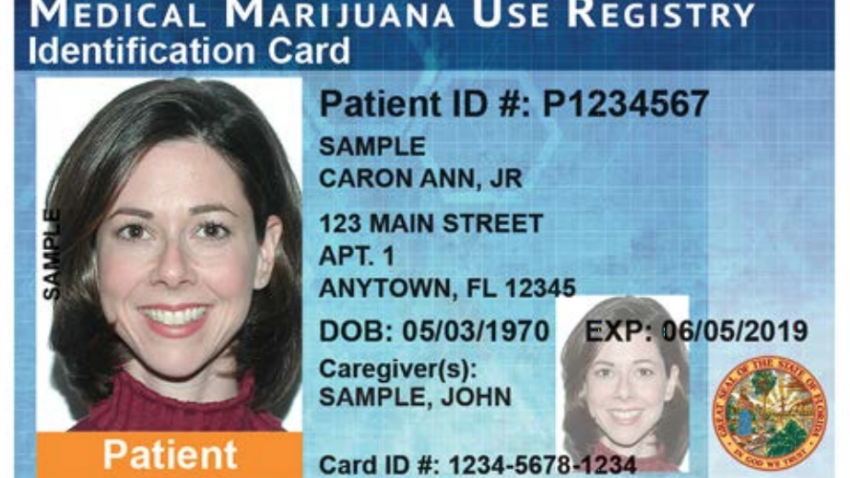Medical Marijuana Programs
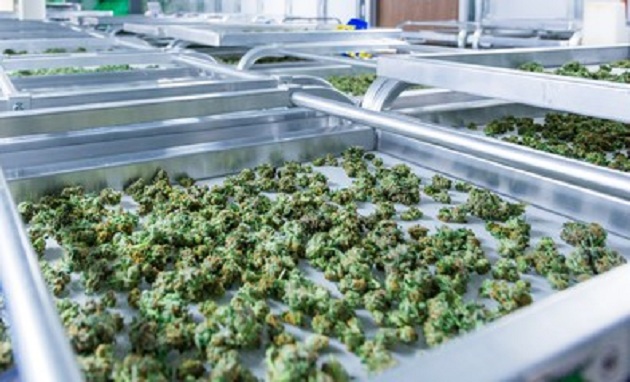 Marijuana has been used as a medicine for centuries. It was even listed in the United States Pharmacopeia until 1942. The active ingredients in marijuana are known as cannabinoids. There are more than 100 different cannabinoids in marijuana, and each one has a different effect on the body. THC (tetrahydrocannabinol) is the cannabinoid that is most well-known for its psychoactive effects. CBD (cannabidiol) is another cannabinoid that has been shown to have medicinal properties without the psychoactive effects of THC.
Medical marijuana programs are state-level initiatives that allow for the legal use of marijuana for medical purposes. These programs typically have strict guidelines in place regarding who is eligible to receive a medical marijuana card, and what conditions can be treated with marijuana. Medical marijuana has been shown to be effective in treating a variety of conditions, including pain, seizures, and nausea.
Some states have also legalized recreational marijuana use, although this is not yet the case nationwide. Medical marijuana programs are constantly evolving, and more research is needed to fully understand the potential benefits and risks of using marijuana for medical purposes.
Marijuana has been used as a medicine for centuries. It was even listed in the United States Pharmacopeia until 1942. The active ingredients in marijuana are known as cannabinoids. There are more than 100 different cannabinoids in marijuana, and each one has a different effect on the body. THC (tetrahydrocannabinol) is the cannabinoid that is most well-known for its psychoactive effects. CBD (cannabidiol) is another cannabinoid that has been shown to have medicinal properties without the psychoactive effects of THC.
Medical marijuana programs are state-level initiatives that allow for the legal use of marijuana for medical purposes. These programs typically have strict guidelines in place regarding who is eligible to receive a medical marijuana card, and what conditions can be treated with marijuana. Medical marijuana has been shown to be effective in treating a variety of conditions, including pain, seizures, and nausea.
Some states have also legalized recreational marijuana use, although this is not yet the case nationwide. Medical marijuana programs are constantly evolving, and more research is needed to fully understand the potential benefits and risks of using marijuana for medical purposes.
Qualify For A Medical Marijuana Card In Florida
In order to enter a dispensary in Florida, you must first qualify for a medical marijuana card. There are a few different ways to do this. First, you must be a resident of Florida. You will need to provide proof of residencies, such as a driver’s license or state ID. Second, you must have a qualifying medical condition. The list of conditions that qualify for medical marijuana treatment in Florida includes cancer, HIV/AIDS, glaucoma, Crohn’s disease, and Parkinson’s disease, among others. Third, you must obtain a recommendation from a licensed physician. The physician will need to fill out and sign a Physician Certification Form. This form must then be submitted to the Florida Office of Medical Marijuana Use. Once you have met all of these requirements, you will be able to apply for a medical marijuana card from the Florida Office of Medical Marijuana Use. Once you have been approved, you will be able to enter a dispensary and purchase medical marijuanaWho Can Enter A Florida Dispensary
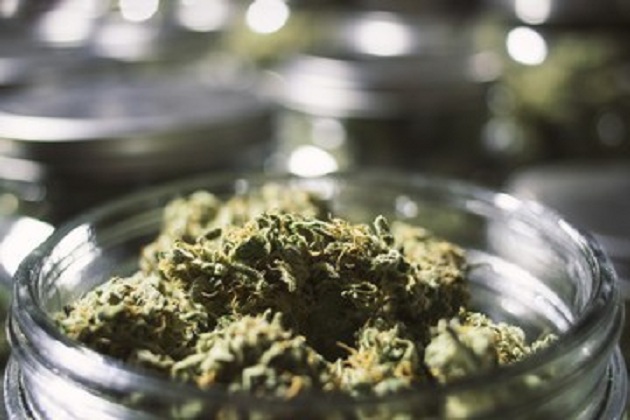 To be able to enter a medical marijuana dispensary in Florida, you must be a qualified patient or caregiver. You will need to present your valid ID and proof of residency to the dispensary staff. Once you are verified, you will be able to browse the dispensary’s menu and purchase the products that you need.
If you are not a qualified patient or caregiver, you will not be able to enter a Florida dispensary. Only qualified patients and caregivers who have been verified by the dispensary staff will be allowed inside. This is to ensure that only those who need medical marijuana are able to access it.
If you’re a Florida resident suffering from a qualifying medical condition, All Natural MD can help you get the relief you need with medical marijuana. We are proud to be one of the first and best Florida medical marijuana doctors certification companies, and we’ve helped over 15,000 patients receive treatment.
Our experienced and knowledgeable staff will work with you to determine if medical marijuana is the right treatment for your needs and if so, help you through the process of getting certified. Just visit one of our many convenient locations to get started. You don’t have to suffer any longer – let us help you find the relief you need with medical marijuana. Call 800-250-6737
To be able to enter a medical marijuana dispensary in Florida, you must be a qualified patient or caregiver. You will need to present your valid ID and proof of residency to the dispensary staff. Once you are verified, you will be able to browse the dispensary’s menu and purchase the products that you need.
If you are not a qualified patient or caregiver, you will not be able to enter a Florida dispensary. Only qualified patients and caregivers who have been verified by the dispensary staff will be allowed inside. This is to ensure that only those who need medical marijuana are able to access it.
If you’re a Florida resident suffering from a qualifying medical condition, All Natural MD can help you get the relief you need with medical marijuana. We are proud to be one of the first and best Florida medical marijuana doctors certification companies, and we’ve helped over 15,000 patients receive treatment.
Our experienced and knowledgeable staff will work with you to determine if medical marijuana is the right treatment for your needs and if so, help you through the process of getting certified. Just visit one of our many convenient locations to get started. You don’t have to suffer any longer – let us help you find the relief you need with medical marijuana. Call 800-250-6737
There are many different types of medical cannabis strains, each with its own unique set of properties and benefits. When choosing a strain for medical use, it is important to consider the specific condition you are treating and select a strain that is known to be effective for that condition.
Some of the most popular medical cannabis strains include:
- ACDC: This high-CBD strain is effective for treating pain, inflammation, anxiety, and seizures.
- Harlequin: Another high-CBD strain, Harlequin is known for its anti-inflammatory properties and is often used to treat conditions like arthritis and fibromyalgia.
- Granddaddy Purple: A potent Indica strain, Granddaddy Purple is effective for treating pain, anxiety, and insomnia.
- Sour Diesel: A Sativa-dominant strain, Sour Diesel is energizing and uplifting, making it a good choice for treating depression and fatigue.
- OG Kush: A popular strain for treating pain, anxiety, and insomnia, OG Kush is also known for its ability to promote relaxation and calmness.
Benefits Of Hybrid Medical Cannabis Strains
Medical cannabis strains are those that have been specifically bred to contain higher levels of CBD and other medicinal compounds.
There are many benefits to using hybrid strains of medical cannabis. For one, they can provide relief for a wide range of symptoms. Hybrid strains can also be less psychoactive than pure THC strains, making them more tolerable for some patients.
Another benefit of hybrid strains is that they tend to be more user-friendly for first-time cannabis users. This is because the THC content is usually not as high, making the experience more pleasant. Hybrid strains are also a good choice for people who want to avoid the couch-lock effect that can be associated with some pure Indica strains.
In general, hybrid strains offer a wider range of benefits than either pure Indica or pure Sativa strains. This makes them a good choice for patients who are looking for relief from a variety of symptoms.
Marijuana Doctor
Marijuana has been used for medicinal purposes for centuries. In recent years, there has been a resurgence in interest in the use of marijuana for medicinal purposes. A growing body of scientific evidence suggests that marijuana may have a wide range of therapeutic benefits.
Our Marijuana Doctors specialize in the use of marijuana for medical purposes. We help patients with a wide variety of conditions, including cancer, chronic pain, anxiety, and more. Marijuana We also provide patients with information on how to safely and effectively use marijuana for medicinal purposes.
When considering using marijuana for medicinal purposes, it is important to consult with our marijuana doctor to ensure that you are using it safely and effectively. Contact our office today to schedule an appointment with one of our Marijuana Doctors.
Finding Your Perfect Medical Cannabis Strain
Here are a few things to consider when choosing a medical cannabis strain:
1. What are your symptoms?
Different strains of cannabis can provide relief for different symptoms. So, it’s important to start by identifying what your specific symptoms are. This will help you narrow down your options and find a strain that’s more likely to be effective for you.
2. What is your preferred method of consumption?
Cannabis can be consumed in many different ways, including smoking, vaporizing, edibles, and more. Some strains are better suited for certain methods of consumption than others. So, if you have a preferred method, that’s something to keep in mind when choosing a strain.
3. What is your desired effect?
Different strains can produce different effects, from relaxation to energy and everything in between. Think about what kind of effect you’re hoping to achieve and choose a strain accordingly.
4. Do you have any preferences in terms of taste or smell?
Cannabis strains can vary widely in terms of taste and smell. Some are earthy, some are fruity, and some are somewhere in between. If you have any preference in this department, it’s worth considering that when choosing a strain.
5. What is your budget?
Different strains can also vary in price, so that’s something to keep in mind when making your decision. If cost is a major factor for you, there are plenty of affordable options out there.
Get A Medical Marijuana Card In Florida
Having a medical marijuana card in Florida can help you get your hands on some of the best strains of cannabis available.
At All Natural MD, our mission is to help improve and revitalize the health and daily lives of every one of our patients through compassionate care and the personal individualized touch that we offer. Contact our team of experts to see if you qualify for medical marijuana in Florida. We are committed to maintaining a welcoming and safe environment and we’ll do all we can to make your visit a pleasant one. Call 800-250-6737
Florida legalized medical marijuana under amendment 2 in October of 2016. Amendment 2 is a constitutional amendment that created Florida’s medical marijuana program. It was approved by 71% of Florida voters on November 8, 2016. Amendment 2 added a new section to Florida’s state Constitution, entitled “Medical marijuana production, possession and use.” Amendment 2 protects qualifying patients, caregivers, physicians, and medical marijuana dispensaries and their staff from criminal prosecutions or civil sanctions under Florida law (but not under federal law).
The initial step in obtaining your Florida medical marijuana card is to make an appointment with the All Natural MD’s team of medical marijuana card doctors. They have one of the few licensed and authorized medical cannabis physicians in the sunshine state of Florida. The appointments range from $100 to $200 and take approximately 15-20 minutes. Once the doctor approves you, you will be entered into the medical marijuana use registry where you will finalize the steps for your medical marijuana card. See qualifying conditions below:
Qualifying Conditions For A Medical Marijuana Card in Florida
If you have one or more of the conditions listed below, you can qualify for a medical marijuana card in Florida.
- Anxiety
- Depression
- Insomnia
- Bipolar
- ADD, ADHD
- PTSD
- Chronic Pain (Anywhere)
- Arthritis /Joint Pain (Any)
- Headaches/Migraines
- IBS
- Ulcerative Colitis
- Chron’s
- Cancer
- Seizures
- Epilepsy
- Glaucoma
- Parkinson’s
- HIV/AIDS
- Multiple Sclerosis
- Hypertension
- Tourette’s Syndrome
- We offer a Guaranteed Approval or our your money back! Call us (800) 250-6737.
Finalizing The Steps For Your Florida Medical Marijuana Card
Once entered into the OMMU office of medical marijuana use registry system. You will receive a temporary passcode. Take the passcode along with your email address and sign in. Once in, click the button the start your initial application. That will take you in where you can complete a few easy steps to prove your residency and pay $77.75 at the end. Florida residents can expect same day approval, all others 5-7 business days.
Visiting A Medical Marijuana Dispensary in Florida
Once you have your temporary or permanent Florida medical marijuana card, you can visit any licensed and approved dispensary in Florida. All Florida medical marijuana dispensaries paid in excess of 50 million dollars to get a license to grow and sell marijuana to Florida residents which makes them all a very reliable source. These dispensaries include:
- Trulieve
- Surterra Wellness
- Curaleaf
- Fluent
- Green Dragon
- Grow Healthy
- HT Medical Cannabis
- Liberty Health Sciences
- MUV
- Rise
- Jungle Boys
- Sanctuary Med
- Sunny Side Farms
- The Flowery
- VidaCann
- Gold Leaf
The team at All Natural MD will help you through every steps of the process. With locations for Florida marijuana cards all over the State of Florida to assist you, give us a call and see if you qualify to get your medical marijuana card today. Schedule your appointment for a medical marijuana card today and get approved the same day.

